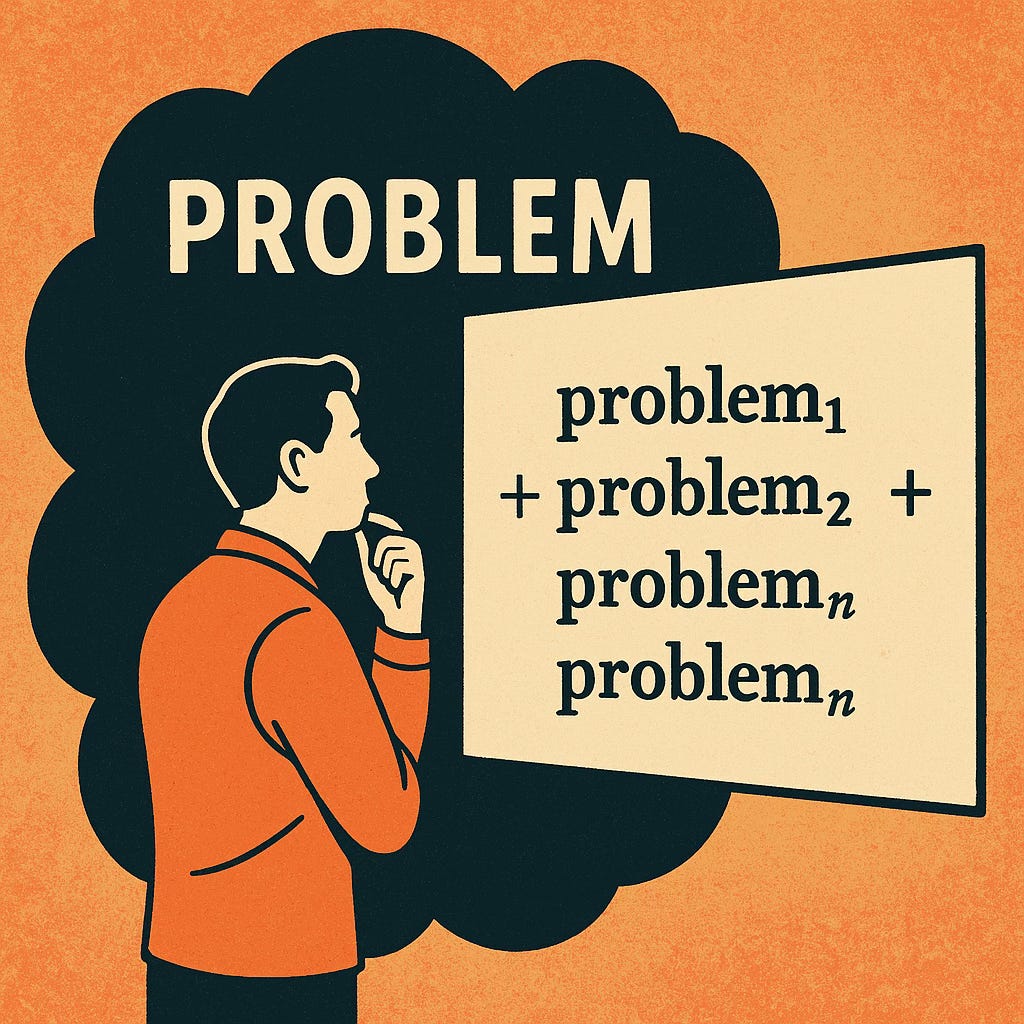In microeconomic theory, particularly within models of monopolistic competition, additive separability is a key assumption in the formulation of consumer utility functions. It implies that the total utility derived from consuming a bundle of differentiated products—such as various flavors of yogurt, types of entertainment, or brands of clothing—can be expressed, for a finite number of varieties, as the arithmetic sum of the utility obtained from each individual variety. Mathematically, this allows for considerable simplification in both analysis and optimization, as each component contributes independently to the overall satisfaction of the consumer. This concept, while seemingly technical, offers a surprisingly powerful metaphor for managing complex and emotionally taxing real-life problems.
Many individuals, when facing a challenging period in life, perceive their situation as a dense and overwhelming aggregate: “I have so many problems.” This global perception not only creates a psychological burden but also breeds inertia. Even when one begins to address a particular issue, the mere awareness of other unresolved matters undermines motivation and clouds judgment. Much like facing an unwieldy utility function with cross-effects between all variables, one becomes trapped in the mental complexity of interdependence. As in economic models, a more efficient approach is to apply the logic of additive separability: to mentally and emotionally decompose the aggregate into manageable sub-problems and focus on one at a time.
By isolating individual components of a broader difficulty, we can redefine a tangled situation as the sum of distinct, solvable parts. This shift is not just a matter of psychological technique but mirrors the elegance of economic reasoning. In doing so, one voluntarily adopts an “unknown-known” approach—acting as if only one problem exists at a time, even while being fully aware of the others. This deliberate narrowing of focus enhances clarity, facilitates more targeted efforts, and increases the likelihood of early wins. Like maximizing utility from one variety at a time, solving a single problem yields a discrete improvement in well-being.
The benefits of this approach extend beyond logical efficiency. Solving a first problem—however small—generates a sense of control, increases self-confidence, and produces a form of psychological momentum. Just as consumers gain marginal utility from each additional variety, the individual gains emotional resilience with each problem resolved. The act of breaking down and conquering small parts of a greater whole reinforces the belief that the rest is also manageable. Emotional strength compounds, much like the additive accumulation of utility.
This strategy closely resembles a method in mathematics: integration by parts, where a complex integral is broken into more tractable components. In both cases, mastery comes not from solving the entire problem at once but from decomposing the whole into parts we already know how to handle. In the psychological realm, this means deliberately setting aside the knowledge of the whole in order to efficiently act on a part—only to return later and apply the same method again. It is a practical art of self-deception used not to ignore reality, but to empower action.
In conclusion, additive separability is more than a technical assumption in consumer theory; it is a blueprint for psychological strategy. By viewing life’s problems not as a paralyzing whole but as a sum of independent challenges, individuals can take focused action, build confidence, and transform discouragement into forward momentum. Just as in economics, where simplification leads to optimization, in life too, clarity through separation leads to resilience and resolution.

